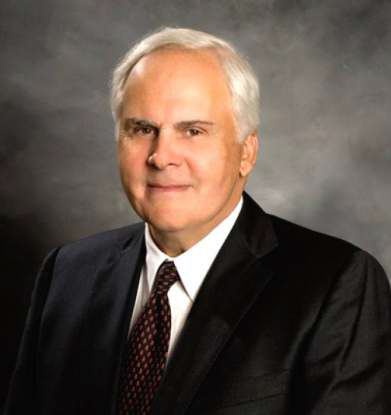The Lounge - Frederick Smith
Founder and Chairman FedEx
When you hear FedEx, fast and efficient delivery anywhere
in the world comes to mind. Over the past four decades, it
has inspired other courier and cargo handlers to venture into
the air cargo industry.
It is, of course, the largest cargo airline in the world in terms
of freight tons flown and in fleet size, born in Little Rock,
Arkansas in the United States.
Listed in the New York Stock Exchange, FedEx has annual
revenues of $58 billion with a global reach to more than 375
countries, manned by over 400 team members all over the
world.
Founded by Frederick Smith, one of the world’s richest with
an estimated net worth of $3.7 billion, FedEx, was actually
born as an idea when the Yale undergraduate businessman
wrote a term paper outlining a system to accommodate
urgent, time-sensitive shipments like medicine, computer
parts and electronics.
He Proposed a system specially designed to accommodate time-sensitive shipments such as medicine,
computer parts, and electronics. Smith’s professor
apparently didn’t see the revolutionary implications of his
thesis, and the paper received just an average grade.
In August 1971, following a stint in Vietnam War, Smith
bought controlling interest in Arkansas Aviation Sales,
located in Little Rock, Arkansas.
While operating his new firm, he saw firsthand how difficult
it was to get packages and other airfreight delivered within
one to two days. With his term paper in mind, Smith set out
to find a better way.
Thus, the idea for Federal Express was born: A company that
has revolutionized global business practices and that now
defines speed and reliability.
He named his company Federal Express because it
suggested an interest in nationwide economic activity.
Despite the challenges he faced which nearly wiped out the
investments of his investors, Smith went on with FedEx,
which eventually prospered and became global.
Smith’s pioneering spirit, who as a young boy overcame his
bone disease to become a successful football player and
even learning to fly at 15, was featured in the website of the
nonprofit foundation, Academy of Achievement, in hopes of
inspiring others. Excerpts of his interview below.
What kind of a student were you?
Frederick Smith: I was a good student. I liked to read
enormously. I loved history. It was not difficult for me to
make good grades.
Were there any books that were important to you when you
were a kid?
Frederick Smith: I read a lot of history, and still do, as a
matter of fact. I remember reading a very famous book
called Death Be Not Proud, that affected me a lot. It’s about a
young boy who had a brain tumor and how he handled that. I
read an awful lot about famous people, the generals and the
presidents, and things of that nature.
How did you spend your spare time? Obviously, you were an
athlete.
Frederick Smith: I always loved to play sports and that was
the biggest avocation I had as a youngster. I suspect that I
was unusual in the amount of reading I did. I loved to read
when I was young, I love to read today. I still spend a
tremendous amount of time doing that.
Are there any other books that come to mind from your
childhood?
Frederick Smith: I remember reading a biography of General
Lee, of course, which was obligatory for any kid from the
South. Perhaps he was working for not a very good cause,
but the way the man conducted his affairs and managed his
life were exemplary. I think that had a very big effect on me.
When did you know what you wanted to do with your life?
Frederick Smith: I didn’t really decide that until I was in the
Marine Corps and decided that I wanted to go into business.
What sacrifices have you had to make?
Frederick Smith: You have to pay a big personal price in
terms of time and other things. You have to have a decision
regarding priorities. If you’re not willing to work hard, if
you’re not willing to give it your total commitment, you’re
probably not going to be successful.
That means you’re probably not going to be a very good
golfer. You have to do what I do, take up tennis, where you
can do it in an hour and a half. You can’t spend five hours on
it. You have to prioritize what’s important for you and what’s
not.
What do you think are the most important principles, or
ideals, or policies that have made Federal Express such a
success?
Frederick Smith: First and foremost is our corporate
philosophy, which we call PSP: People, Service, Profit. If
you’re going to run a high service organization, you have to
get the commitment of the people working for that
organization right at the start. If you don’t, you’ll never be
able to deliver at the levels of expectations of the customer.
You can’t make people do what’s right. You can lead them,
and you can empower them to make the right decision, but if
you don’t produce a culture that allows them to do that, then
all the rest is just bumping your gums as one of my old
business partners used to say. That’s Jim Barksdale of
Netscape, by the way, who’s been very successful himself


